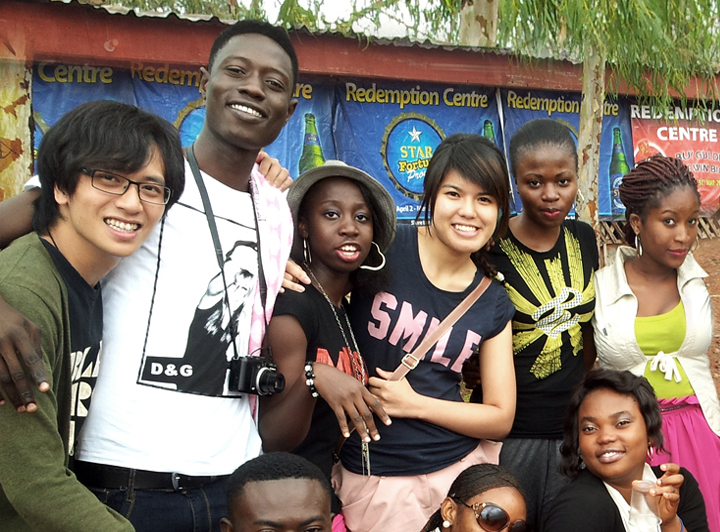Businesses around the world are constantly changing. Some businesses prosper, while others falter. Something else also needs change: our efforts to help the underprivileged. In order to help students develop a caring attitude, business schools should educate their students about business ethics and social responsibilities. The HKUST Business School takes an active interest in serving communities and shows genuine concern for the world we live in.
Diana Chung, an HKUST business school student from Hong Kong, traveled to Jos, Nigeria as part of Project YES. YES stands for Young EntrepreneurShip. Diana participated in this project through AIESEC, in which she incorporated her own unique elements into the public service requirement in the BBA in Global Business (GBUS) curriculum at the HKUST Business School. Project YES focuses on helping young entrepreneurs develop business plans for emerging economies and guiding them on the strategies to be successful in their business objectives. The aim of this project is to help young individuals put their skills into action as a way of contributing to poverty eradication in Africa.

During the six-week service program, Diana worked at the Highland Microfinance Bank to help young entrepreneurs in Nigeria develop their own businesses. In addition to gaining hands-on experience in several work stations such as the Customer Service Department, Cashiers, Cash Office, and the Marketing Department, Diana also learned about some concepts of micro-financing in Nigeria, including the Micro Credit Account and Adashe Account (which means “little daily contribution"). The Micro Credit Account enables farmers and fisherman to secure enough capital to face the natural environment uncertainty in the agriculture business, while the Adashe Account promotes the concept of savings by allowing customers to apply for loans up to three times the amount they have contributed.
“People in Nigeria cannot rely on donations alone,” said Diana. “Instead, having access to banking and micro-financing services are keys to helping underprivileged Nigerians in their fight against poverty.”
The working culture was something Diana had to adapt to. “Every morning when I arrived at the office, I have to go around and shake hands with all the colleagues” Diana said. When she had snacks around the office, her co-workers would take some from her without asking. While she felt frustrated by these actions, she soon realized that it was the norm to share with everyone in the office. “I just wish Hong Kong people could be that generous and caring as well; I will start influencing others with my own actions”.
Diana also had to deal with the very different living conditions in Nigeria. Electricity was only available for a few hours of the day, and Wi-Fi/internet is virtually unheard of in Jos. In the markets, clouds of flies were seen hovering on food. Unsterilized water had to be fetched from the wells and carried home.
Despite all the hardships she faced, Diana found her trip to Africa to be rewarding and life changing. “Understanding Nigerian culture has shaped me to become a more open-minded and peace-loving person. This has caused my personality to change and I am using this experience to influence others” said Diana.
Since 2007, the HKUST Business School has successfully organized a total of 53 social responsibility projects in collaboration with more than 40 organizations, involving over 600 undergraduate students. In addition, over 80 students, including Diana, have initiated their own service projects in collaboration with over 20 organizations under the guidance of SBM faculty members.



